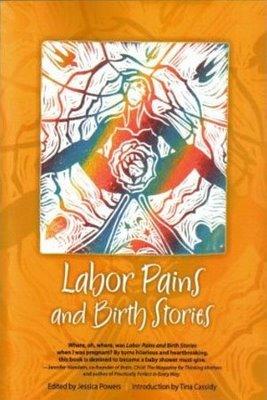Labor Pains and Birth Stories: Essays on Pregnancy, Childbirth, and Becoming a Parent

There is no older and greater story than childbirth. Pregnancy. Fertility. Life.
For women, who carry the impossible miracle of bringing life into the world, birth and labor reflect the diverse experiences of our lives and livelihood. Our process through medical care, partners, health, choice, and mystery are as different as the children we birth.
Labor Pains and Birth Stories is a small mirror of that richness. With twenty-nine compelling essays of pain and strength, each glimpse these writers provide validates the awesomeness and depth of the process of pregnancy. Written from mostly women authors, Powers weaves together a tapestry of debate, conflict, joy, and uncertainty all through the common practice of story-telling our lives.
One of the most compelling essays is "La Promesa de Esperanza," written by Noemi Martinez, which stands considerably unique in its own corner with its sorrowful honesty and bravery. Martinez is a single mother of two, who embraces her tangled web of religion, abuse, and isolation: "This birth of myself into who I am now was a process of layers being built and torn down, reconstructed. Pieced together now, I’m an installation, a collage."
Another distinct essay came with an emotional avalanche. The book had to be temporarily put aside as I wept into Elisabeth Aron’s words, "The Birth Story of Miles," who tenderly remembers the joy and grief of her journey with her son Miles. Her writing is simple and knowing; every detail delivers a clear stroke of her memory, and even readers unfamiliar with pregnancy and birth will connect with this exceptional piece.
The backgrounds of these parents show the diversity of their stories. The undercurrent of their stories hints at class differences and whether they could afford international adoption or uninsured fertility treatment. Their individual voices speak a multitude of languages: different cultural practices and observations, how their pregnancy was viewed by their communities, how much support and education they were given throughout their process.
Not only are the individual literary essays gifts for those seeking comfort and company in their own birthing experience; the collection as a whole can be used for critical analysis as to how the world not only accepts children, but how we treat and care for mothers as well.
Interesting book. I've just started a project on Feminist mothering and this book looks like a good resource. Thanks for the review!